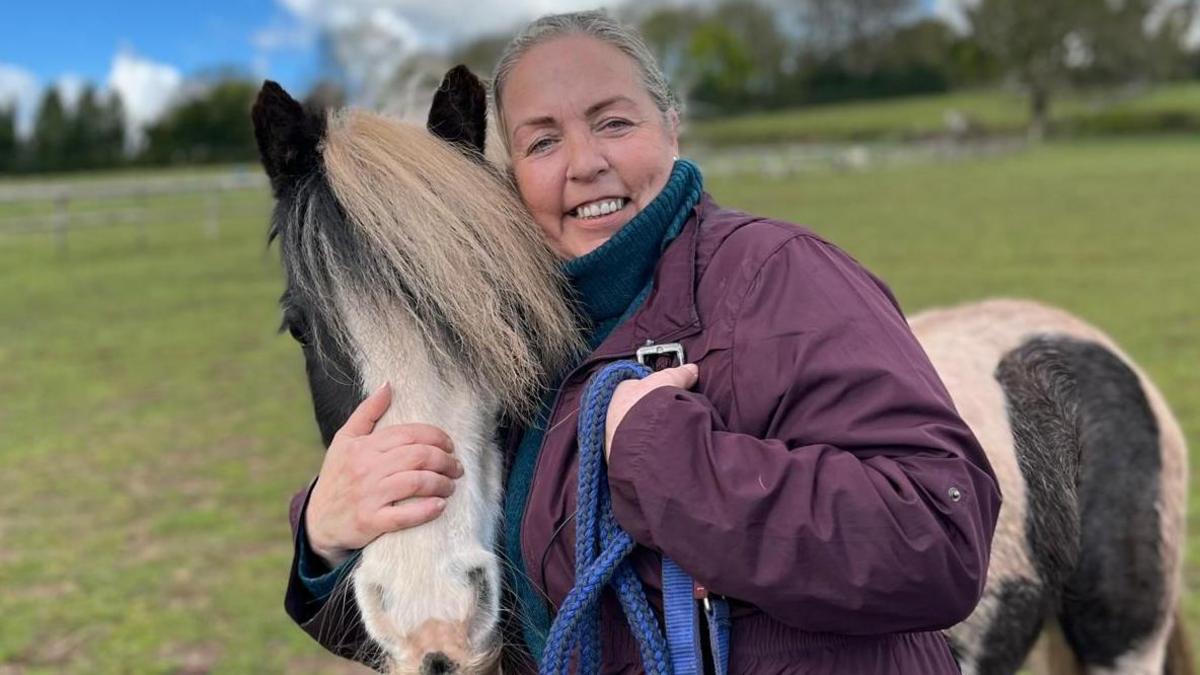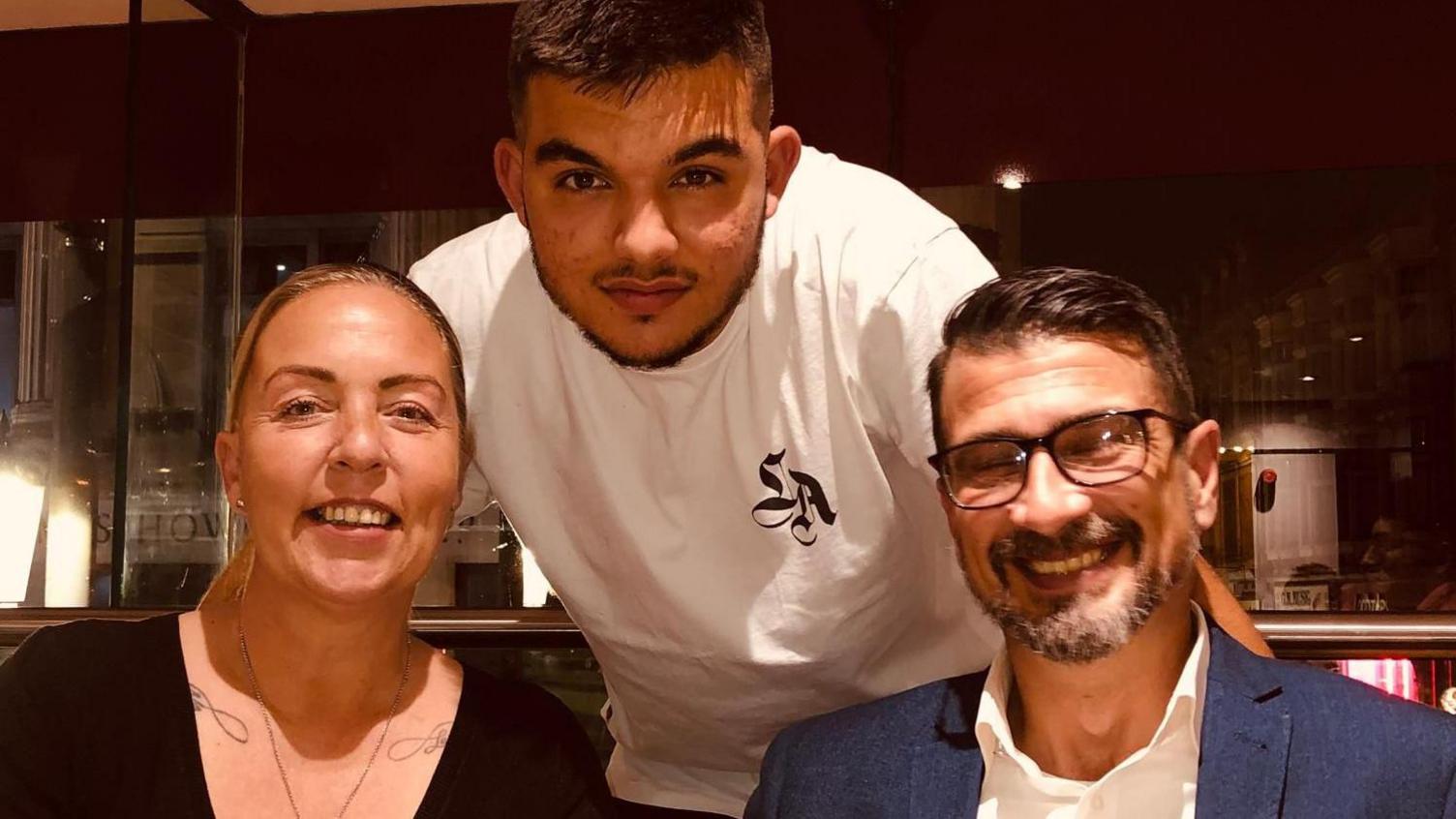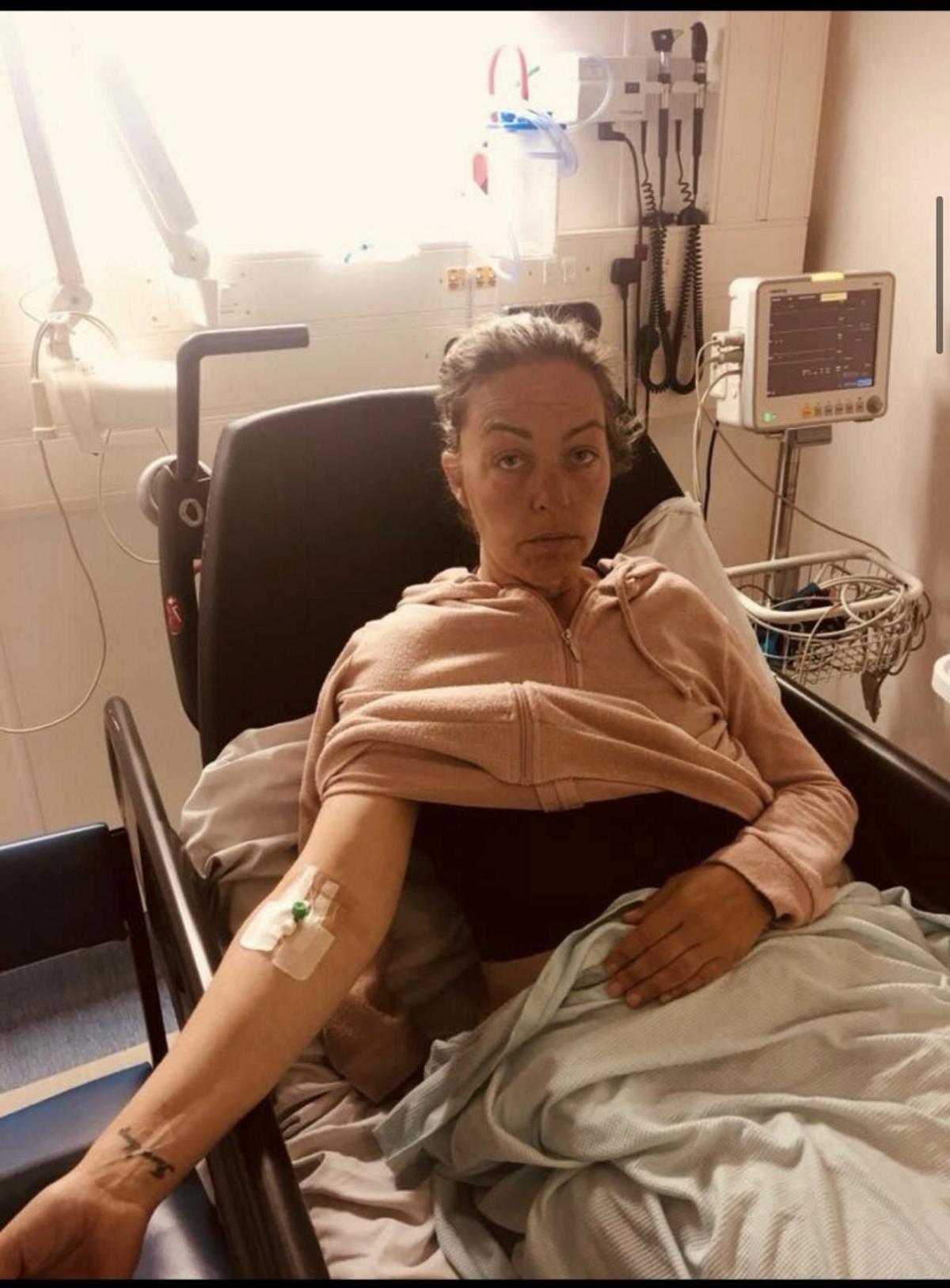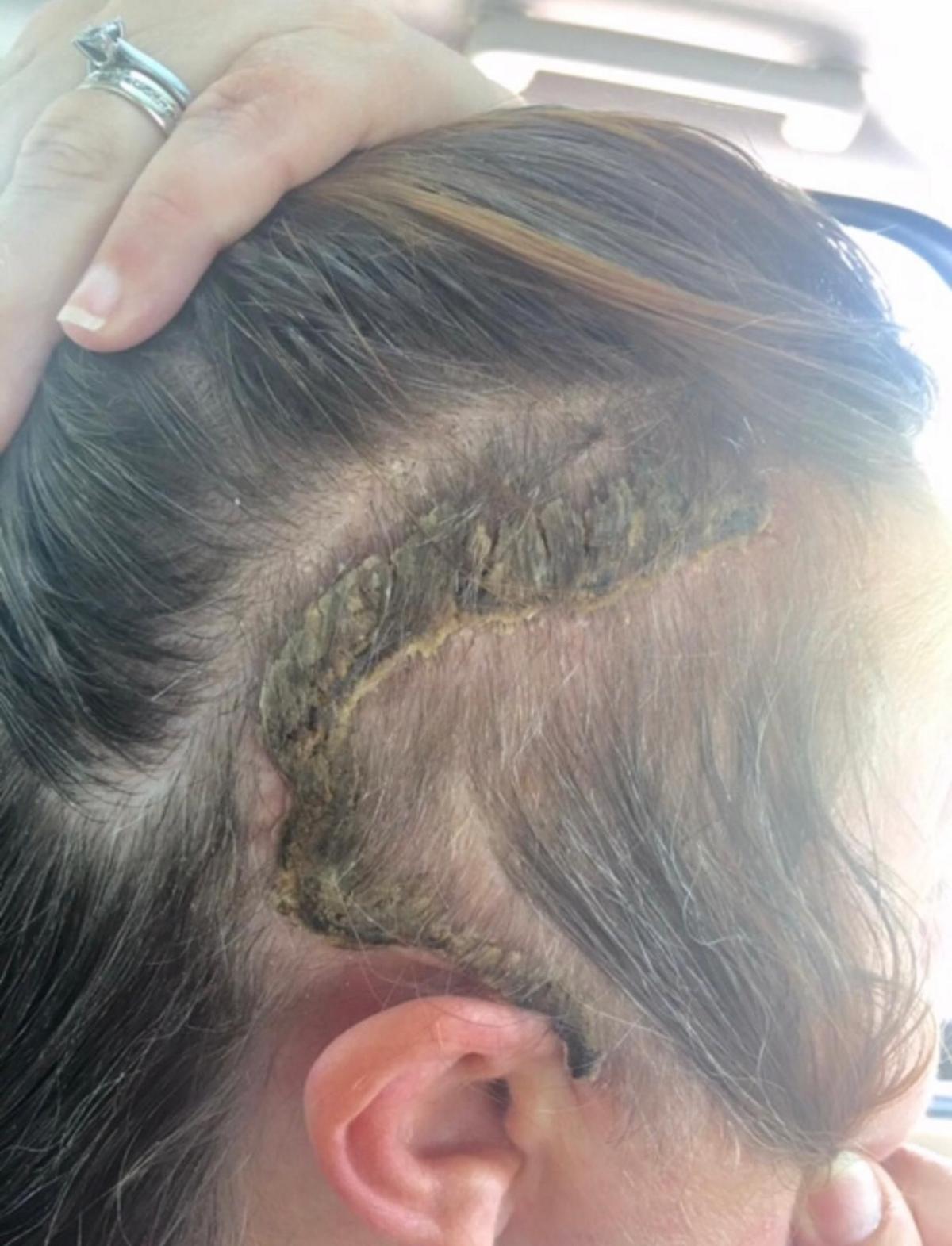Wales' first brain tumour hub announced

Alex had to give up horse riding after her brain tumour diagnosis, but still spends time with her friend's therapy horses
- Published
"I was very scared of dying and I didn’t want to leave my little boy."
A brain tumour diagnosis came as a bolt out of the blue for Alex Aghili Kordmahale, from Abergavenny, Monmouthshire.
Right until the seizure that put her in hospital, she had no symptoms, but the 50-year-old was told the slow-growing tumour had likely been there for years and needed surgery quickly.
Cancer Research Wales has now announced the nation's first brain tumour research hub, with a goal of investing up to £1m each year, bringing together experts to better understand the disease.
'A stranger I met at the beach gave me her kidney'
- Published24 April 2023
Doctor reveals how 'brutal' therapy tackled Rhod Gilbert's cancer
- Published10 March 2024
Cancer survivor targeted by trolls for wearing wig
- Published26 January 2024
Seven years since her surgery, Alex feels she has put most of the pieces of her life back together, but as one of about 500 people in Wales diagnosed with a brain tumour each year, she feels research is vital.
"One of the main issues with brain tumours is they do say they re-occur – but knowing that research is in place most definitely gives me hope," she said.
"So if mine comes back, I will do it all again."

Alex said her family were a huge support, but the diagnosis also took its toll on her son, Taylan and husband, Leo
She said the diagnosis also had a huge impact on her family and finances.
"I think I am who I used to be, but I do think it’s taken something away from me.
"I was lucky we had savings, but they dwindled very quickly."
Her husband Leo initially had to give up his work in sales as seizures meant she couldn’t be alone and fatigue means she cannot return to her two jobs as an estate agent and restaurant worker, though her husband is now back in work.
She also had to give up her love of horse riding: "I will always be grateful for the horses I had in my life because without them I wouldn't have got through this. They were my therapy.
"When I wanted to have a cry and not affect my family I'd sit in the stable and I'd cry with my horses."
She still has MRI scans every six months, but hopes further research can reduce the fear so many patients live with.

Alex said she lost a lot of weight during her treatment

Surgery left a c-shaped scar on the right side of Alex's head
Dr Lee Campbell, head of research at Cancer Research Wales, said funding bodies had "woken up" to the fact that, historically, less than 2% of all money spent on research had gone into brain tumours.
He added: "Sadly Wales has missed out on this funding, despite having a number of large clinical and scientific research groups active in this area and we really wanted to address this inequity of research investment.
"Numerous studies have shown the more research intensive your local health body is, the better outcomes are for patients living in that area."
He said the money would focus on innovative research and connecting Wales with other centres across the UK and internationally.
"We also want to invest in travel fellowships where we can send clinicians to other countries to learn the very latest techniques in neurosurgery and radiotherapy and bring these treatments ack to Wales so that Welsh patients are among the first to benefit from these breakthroughs in brain tumour research."